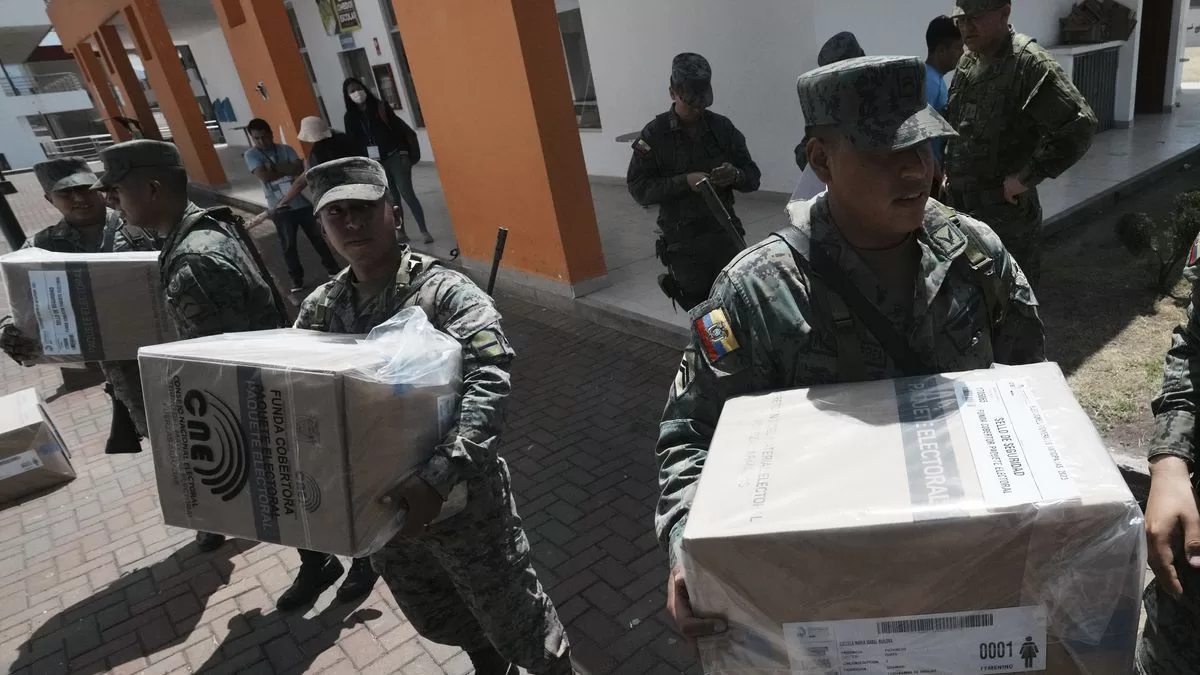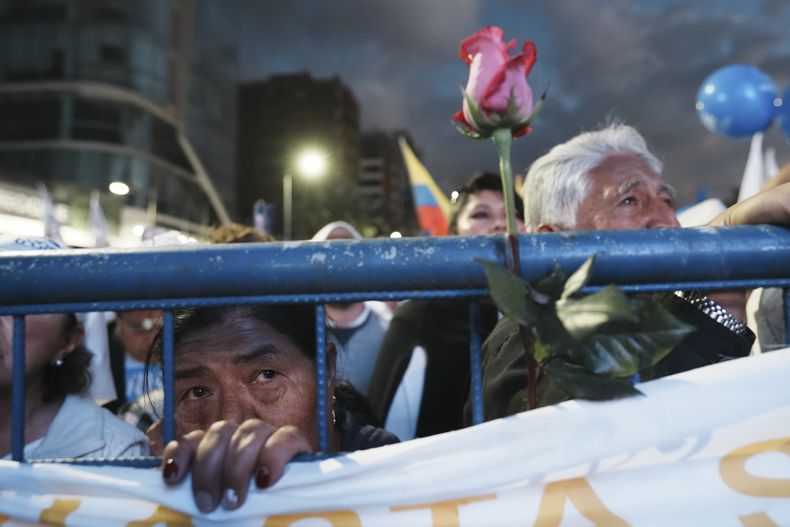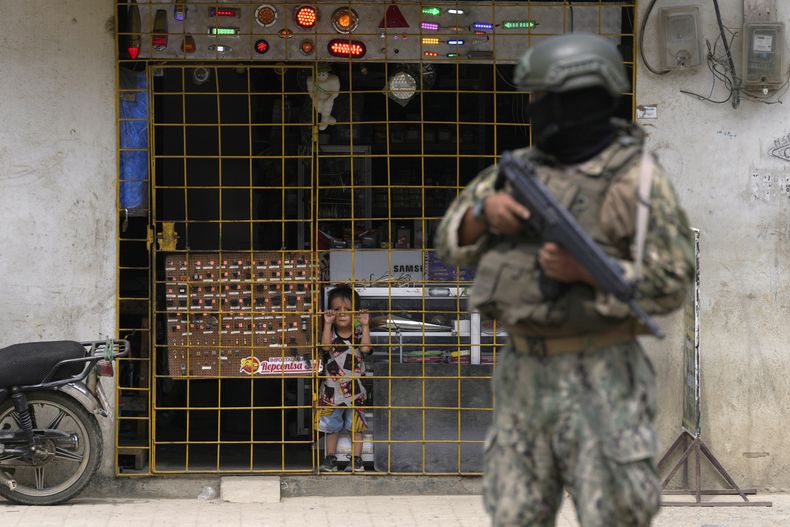At the inauguration of the day, President Guillermo Lasso stressed that these new early presidential elections show that it is possible to “resolve our contradictions (…) through rules and mechanisms that we have agreed upon.”
The consultation responded to a maneuver by Lasso who, in the midst of a political trial to remove him, dissolved the Legislature in mid-May and shortened his own term, which was about two years away.
The president of the National Electoral Council, Diana Atamint, stated that voting “should be a strong democratic message of unity and hope to face the violence that threatens our country, even though pain overwhelms us,” for which she called for unity to face such a threat.
In the capital, which dawned cold and rainy, the electoral boards were installed with minor setbacks while the first citizens lined up at the polls.
Some 13.45 million voters will choose among eight presidential candidates, headed by Luisa González, a progressive leftist, followed by former vice president Otto Sonnenholzner, indigenous lawyer Yaku Pérez, and eventually military-trained economist Jan Topic. .
Ecuador is going through a climate of violence, extortion, kidnapping and hitmen in the streets promoted by criminal gangs in a territorial dispute over drug trafficking and distribution, which leave 4,398 violent deaths in 2023 alone. Reversing this scenario will be the main challenge for the next leader.
In this context, ten days before the elections, presidential candidate Fernando Villavicencio was assassinated as he was leaving a political rally at a school in the north of Quito, the capital. He was replaced by the journalist Christian Zurita, whose application was approved one day before the closing of the campaign. In July, Agustín Intriago, mayor of Manta, the third largest city in Ecuador, was also murdered, and a few days before, a political leader from Esmeraldas.
The fear multiplied by the latest episodes made it necessary to reinforce control operations. The government reported the mobilization of more than 100,000 police and military personnel who will guard the 4,390 authorized electoral precincts, while three command and surveillance posts were activated, in an attempt to calm citizens and encourage their attendance at the polls.
Ecuadorians must elect a president, vice president, 137 assembly members and respond to a popular consultation to keep or not oil underground in an area of extensive biodiversity located in the Amazon. In addition, in Pichincha, whose capital is Quito, there is another question about whether or not to allow mining of silver, gold and other minerals in the Andean forests around the capital.
To win in a single round, a candidate must reach 40% of the valid votes with a distance of 10 points over his immediate rival. An eventual second round of elections will take place on October 15 and the new ruler will take office on November 30.
Voting will open at 07:00 (1200 GMT) and close at 17:00 (2200 GMT). Voting is mandatory for Ecuadorians between 18 and 64 years of age.
FOUNTAIN: Associated Press



